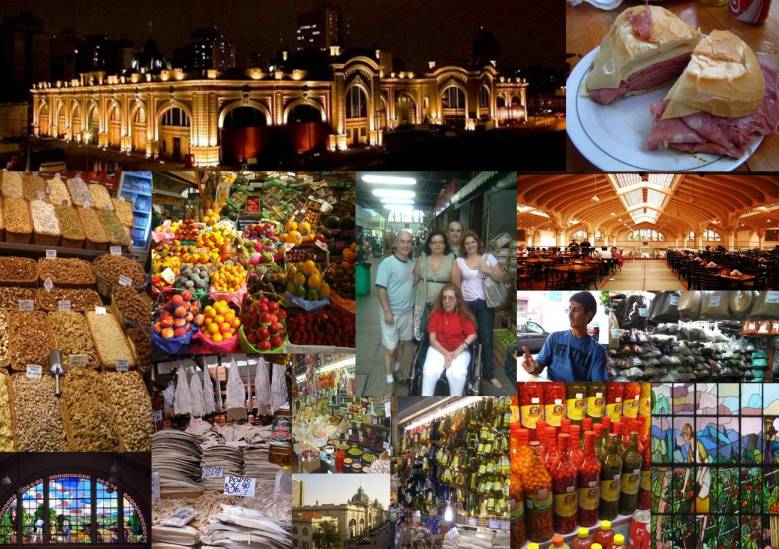|
Plinio Corrêa de Oliveira
Anti-Consumerism: Exaltation of Sloth
From "Catolicismo", n. 536, august 1995 |
|
|
The indolence so characteristic of many of the nations that lived for 50 years or more under the yoke of communist tyranny was aggravated by the fact that everyone had to work more or less gratuitously for the State. In compensation, no one had to work very much and the work was done without much concern, since no one —except the privileged nomenklatura— had any right to systematically better his living conditions by either qualitatively or quantitatively increasing his work. The way to live, then, was to vegetate. But, from a certain point of view, to vegetate is to rest. And mere rest, even if it be in poverty, is a way of enjoying life for many individuals and for many nations. Thus was introduced into these peoples the idea that hard work to produce much does not make up for the drudgery, the worries of developing a business, or the risks of loss that are usually incurred by bad deals. According to the apologists for laziness, the burden of toil and apprehension weighs upon man and is not worth the effort it demands. Better to work as little as possible and likewise eat as little as possible, to rest very much, to drink very much... instead of working hard, consuming abundantly, and constantly improving one's condition in life.
The Theater of Manaus (Amazônia – Brazil) The Indispensable, the Useful, and the Superfluous What does it mean to consume? The first thing that comes to mind is eating, which is certainly contained in the concept of consuming. However, to consume also means to have other pleasures in life, not necessarily those of the magnates of Mammon for whom the doors of high consumerism are open, but those that bring well-being to man in a greater or lesser degree according to the appetencies of his nature. The word consume, then, encompasses all of the things that appeal to the upright temperances of human nature. There may be many items within the scope of a city's consumption that are by no means necessary for eliminating hunger or indispensable for life itself, as for example, three or four great theaters with on-going quality artistic exhibitions that a portion of the population who enjoy these productions will go to see. An excellent museum, an art gallery, and a very good subway system would all fall within this category. The idea of consumption thus includes everything indispensable for life as well as things that are useful and, within the useful, even the superfluous things that make life pleasant. A mother of a family may enter a store and see a porcelain figurine of a shepherdess leading her sheep. The mother thinks it would go well as a centerpiece on the coffee table in the living room, so she purchases it, she “consumes.” She is not going to eat the porcelain object, but acquires it merely for everyone to look at. Nevertheless, this is true consumption. A Typical Socialist Thesis There is a thesis arising today, and if we pay close attention we will discem its socialistic character right from the beginning. Given that some people have much and others little, it is necessary that the first keep only what is indispensable for them to live and that they give their surplus to the others. For, if the former obtain and keep in their possession items of luxury and comfort, they will be consuming much. They will eat much, drink much, enjoy pleasurable vacations. When they travel they will go by plane, preferably their own airplane; they will land at their own airstrip on their own property and they will have a landing pad for their helicopter in their backyard; and so forth. Now, according to the anti-consumerists, no one should have more than he absolutely needs. Therefore, no one has the right to spend money on helicopters, trips, or figurines. Everyone should spend for the advantage of all. A man gifted by God with a great capacity for work behaves well if he gives the fruit of his work to others, but if he keeps what he earns for his own consumption or for his family, he is a big egoist. The result: In a society where no one gains any advantage from working more than the others, no one will work more than the others! It will be a society structured according to the advantage of the lazy and the disadvantage of the authentic workers, of the various social classes. In a society like this, abundance will practically disappear. Voltaire—an evil man, a despicable atheist, and a bloodthirsty promoter of the principles of the Revolution, but a man of some cleverness (with which he did much harm to European tradition)—once uttered this at once clever and profound expression: “The superfluous, a very necessary thing!" It is the contrary of the anti-consumerist doctrine. In order to provide working incentive, those who work must receive due remuneration. For society to take full benefit from the more capable, the more efficient, the more productive—in one word, the better ones—it is necessary for them to earn more. Otherwise, society softens and falls into non-consumerism. From this it slides into a state of chronic, lazy, and moldy poverty that, in its turn, tends toward barbarism.
Some aspects of Municipal Market of São Paulo Rich and Poor Nations: A Specious Dichotomy A current, widespread idea—advocated by not a few of the participants in the Cairo Conference not long ago—is that the world is divided in two parts: the rich nations and the poor nations. The rich nations—the United States, Canada, the countries of Western Europe, Japan—consume. On the other side are the nations of Latin America, Africa, Asia, and Oceania, which do not have the economic level of Europe and North America. According to the upholders of anti-consumerism, North America, Western Europe, and Japan—all consumers—oppress the poor nations, depriving them of all types of business. Consequently, the exploited countries—the non-consumers must launch a counter-offensive against the consumer world, forcing it to lower its level of consumption and descend to the level of the poor world. With this, all will fall into a situation like that inflicted on Russia and the satellite countries of the former Soviet empire by the communist dictators and analogous to the one to which the old tyrant in Cuba subjects his unhappy countrymen. In Favor of Judicious and Proportional Consumerism In face of this regressive anti-consumerism, we must advocate a judicious and proportional consumerism in which the rich nations, far from imposing almost unbearable conditions upon the poor nations, strive to stimulate the production of their poor brethren by helping them provide proportional salaries and levels of existence that will give them a taste for a pleasant and savory consumerism and stimulate them to work even harder. “We will give you money as long as you work,” the rich nations should say. “Be productive and strive to obtain for yourselves through your efforts all the goods you desire. If, through no fault of your own, your meritorious efforts fail, you may then extend your hand for help. We acknowledge, in this case, that it will be our obligation to fulfill your just request in such a way that we will renounce with pleasure our surplus in order to give you what you require.” To make of world relationships a league in which the more capable peoples work uselessly, without any personal advantage, for the incapable, the lazy, and the loafers, is unacceptable. The exaltation of idleness is proper to socialism and communism, not to Christian civilization and Catholic Doctrine. However, this is where anti-consumerism—idle and hard-drinking, enemy of civilization, comfort and well-being of all men—leads to. (*) Translated and published by "Tradition Family and Property" Magazine, July-August 1995. |
|



